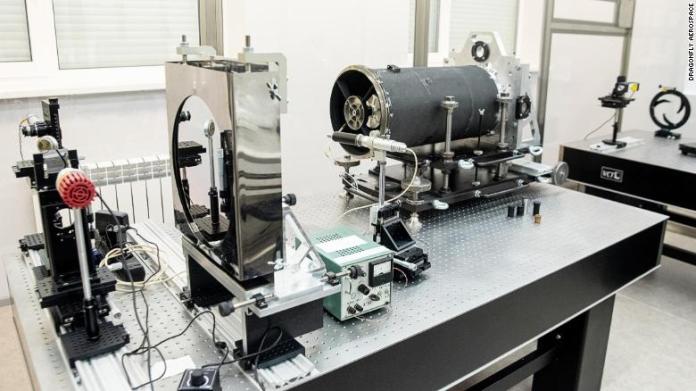Africa’s space industry has been slow to take off, but it’s predicted to skyrocket in the next few years.Since the continent’s first satellite launched more than 20 years ago, 44 have been sent into orbit by 13 African countries, according to consultancy Space in Africa. It says a further 125 are being developed by 23 countries, all expected to launch before 2025.The payoff could be substantial. A 2021 report by the World Economic Forum estimates that data collected from space could unlock $2 billion a year in benefits for Africa.
The report says satellites could address agricultural challenges by measuring crop health, improve water management by monitoring drought, and track tree cover for more sustainable forest management. In a continent where less than a third of the population has access to broadband, more communication satellites could help people connect to the internet.
Addressing Africa’s challenges
South African startup Astrofica was founded four years ago, providing space consultancy services. It supported the CubeSat program at Cape Peninsula University of Technology, which launched a constellation of maritime satellites for tracking ships along the southern African coast.
Astrofica’s co-founder and CTO, Khalid Manjoo, says the goal of the startup is to use the space industry to address Africa’s challenges — from food security to national security.It hopes to launch its first constellation of satellites by the end of 2022, “that will provide decision makers with critical data sets [in] near real time,” according to Manjoo. He hopes the data will be used to monitor crop yield or track the use of fertilizers, as well as help governments with water management.
“The satellites that we put up in space, it’s cool stuff, but it’s not necessarily the end goal; the end goal for Astrofica is to deal with the challenges and problems that we would like to solve,” he says. “They cannot be solved using purely terrestrial systems, they need these critical space-based insights.”Manjoo says African countries are spending too much money acquiring agricultural data from international providers, which is not timely enough — although the company welcomes collaboration with foreign partners.According to Manjoo, ride shares — where satellite manufacturers can buy a spot on someone else’s rocket — have made getting to space cheaper and more accessible. Astrofica is looking to launch its first satellite on board an American SpaceX rocket, a Russian Soyuz rocket, or a Polar Satellite Launch Vehicle in India.
Another South African company, Dragonfly Aerospace, provides imaging systems for satellites and is now working on launching its own constellation.”The new space industry has a lot of opportunity because there’s a lot of growth,” says Bryan Dean, Dragonfly Aerospace’s CEO. “You are now able to launch more satellites for the same amount of money than you were in the past, and a system of satellites in orbit is far more powerful than a single satellite because they work together and combine the data.”Space entrepreneur Max Polyakov bought the company in April and as part of expansion plans, Dean says Dragonfly Aerospace is near completing a 3,000 square meter satellite manufacturing facility in Stellenbosch, South Africa, with capacity to build up to 48 satellites per year.
Dean says one bottleneck for the production of satellites is being able to test how they will behave in the extreme temperatures of space. “In the past this was dominated by government facilities which you could rent,” he says. “But with the advent of more commercial operations, many companies are investing in having those facilities in house.”The company hopes to launch its first satellite in June next year from the US.
Overcoming roadblocks
Minoo Rathnasabapathy, a South Africa-born space research engineer at MIT, says the continent’s space industry still has challenges to overcome, most notably a lack of resources.”When you consider the US or Europe, it’s really apples and oranges.” she says. “In the US we see a lot of private industry and a lot of private funding and we’re seeing NASA and ESA [the European Space Agency] be able to tap into that funding. Whereas in Africa, we’re just not there yet and that’s completely understandable given other priorities of the countries.”Astrofica’s Manjoo says another hurdle is changing mindsets.
“There is still a view across the continent, quite a myopic view, that the investments that you need to justify in space are too high risk and also that money may be better positioned in terms of alleviating tangible issues such as education, poverty, infrastructure upliftment, which decision makers can see,” he says.
Manjoo adds that government bureaucracy is holding back the African space industry and investment is needed to support local businesses.”Those are huge amounts of investments,” he says. “But countries are slowly starting to understand that the investment in space today is actually for the sustainability and prosperity of your country and your region in the years to come.”
– Advertisement –
